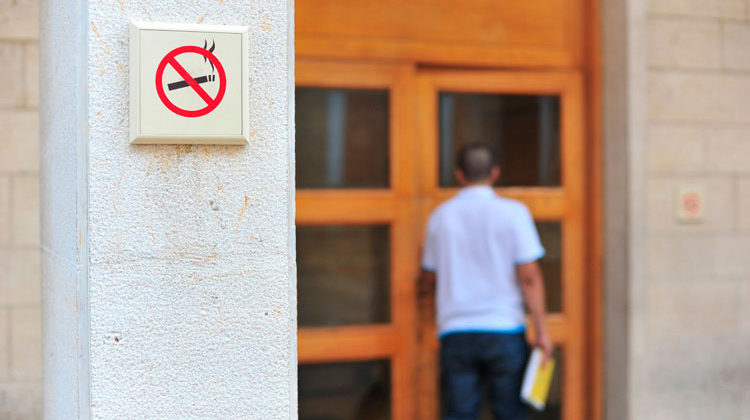AUB’s President Dr. Fadlo R. Khuri, who is a thoracic/head and neck medical oncologist, has vowed to turn AUB into an entirely smoke-free campus (indoors and outdoors) within 24 months in a long letter published on AUB’s website yesterday. At the moment, smoking is not permitted anywhere on AUB campus as well as the AUB beach other than in a few clearly identified locations.
This is a great initiative and I hope they’ll be able to implement it even sooner. You can read the full letter [here].
While Lebanon is disturbingly among the most persistent countries for tobacco abuse, its prime educational establishment is a pioneer in the battle to limit the practice and the harm it causes. Through the outstanding AUB Tobacco Control Research Group (AUB-TCRG), our faculty leads the way in multidisciplinary knowledge production and dissemination, but also crucially in advocacy for evidence-informed policy changes. The different perspectives coming together make for an authoritative research combination. The Faculty of Health Sciences breaks new ground in evaluating tobacco control policies for the region, including gauging the effectiveness of taxation and health warnings, and surveying the prevalence of smoking; the Faculty of Engineering and Architecture hosts its unique aerosol research laboratory; while the Faculties of Medicine, Arts and Sciences, and Agricultural and Food Sciences, and the School of Nursing, all play their part, from developing new analytical techniques, to estimating the costs of tobacco on society, to tailoring chemotherapy, radiation, surgery, targeted and immunotherapies for cancer sufferers.
Today, AUB campus is largely smoke-free, inasmuch as you cannot smoke here except for in designated areas, denoted by brown benches, and in private residences. The work of the taskforce is to bring an end to this accommodating approach to tobacco use, to expand it to all forms of tobacco, smokeless and the water pipe included, and to transform the university space into one that supports the choice of not smoking, that enables smoking cessation, and allows everyone the right not to be exposed to second-hand smoke. By contrast, the existence of brown-bench areas indicates smoking is an acceptable norm that we as an institution can condone. As I said in my introduction, we cannot stand by and allow that to continue. Certainly, we are open to hearing arguments against a comprehensive approach, so that every possible line of debate is explored and measures to mitigate any reasonable objections can be deployed. And I want our top-of-the-range Smoking Cessation resources to be working at full capacity to help students, faculty, and staff grasp this opportunity to liberate themselves from the destructive, demoralizing and expensive chains of addiction and impaired health that tobacco use inevitably leads to. Given our strength in research, this taskforce will deliver significant amounts of survey data that can underpin this important initiative. But if one additional person can be shielded from the ordeal of requiring my medical expertise as one of our cherished cancer patients, it will be well worth it.










[vivafbcomment]